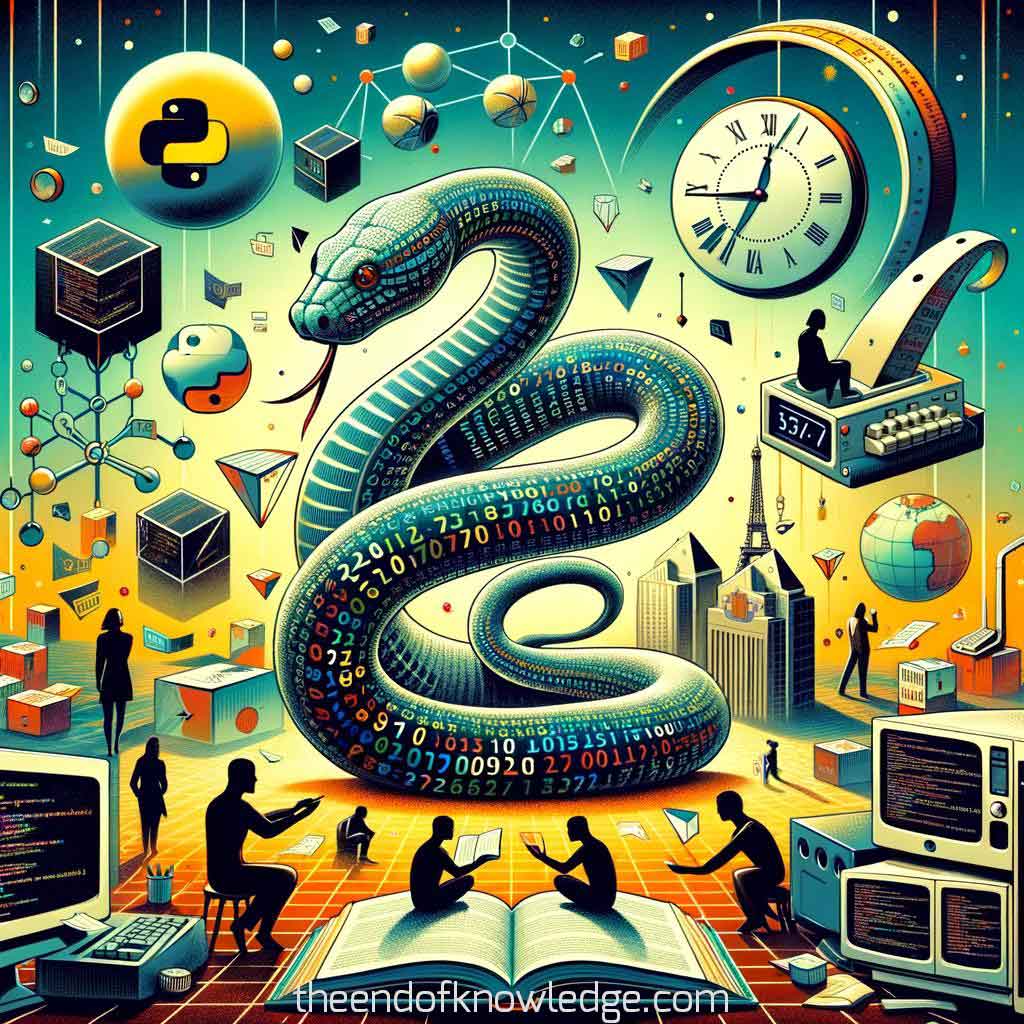 >
>
Concept Graph (using Gemini Ultra + Claude3):
Custom ChatGPT resume of the OpenAI Whisper transcription:
1.- Guido van Rossum discussed Python 4.0, considering the challenges and triumphs experienced in transitioning from Python 2 to Python 3. He acknowledged the complexities and impact of such a significant version change.
2.- The podcast covers Python 3.11, highlighting its performance improvements, claiming 10-60% faster execution. Van Rossum elaborated on the optimizations and technical advancements contributing to this increase in speed.
3.- CPython, the original and primary implementation of Python, was a focal point. Van Rossum detailed its evolution and significance in Python's development history.
4.- A discussion on programming languages' implementation occurred, particularly how Python, written in C, impacts its design and functionality. This included a broader conversation about the influence of programming languages on each other.
5.- Van Rossum touched on the diverse audience of Python, ranging from beginners to expert programmers, emphasizing the language's wide appeal and utility across different skill levels.
6.- The conversation delved into the intricacies of programming languages, comparing them to human languages. This included discussions on language simplicity, ambiguity, and the contextual nuances in both programming and spoken languages.
7.- The importance of code readability was discussed, with Van Rossum explaining its significance in Python's design philosophy. He emphasized that readable code is crucial for collaborative development and maintenance.
8.- Python's indentation style was a topic of conversation, highlighting its impact on code readability and structure. Van Rossum discussed the reasoning behind choosing indentation over other syntactic methods like braces.
9.- The interview explored the historical aspects of programming language design, including the decision-making processes behind certain syntax choices, like the use of indentation in Python.
10.- The concept of bugs per line of code was discussed, offering insights into software quality and the challenges of maintaining error-free code. Van Rossum provided perspective on the prevalence of bugs in programming and the complexity of debugging.
11.- Van Rossum shared his views on learning programming languages, advising a balance between mastering new languages and sticking with familiar ones. He stressed the importance of adaptability in a constantly evolving tech landscape.
12.- The conversation touched upon the role of personal preference and comfort in choosing programming languages and tools. Van Rossum shared his experiences and preferences, reflecting on how personal choices shape a programmer's journey.
13.- Guido van Rossum and Lex Fridman discussed the evolution of programming languages, comparing older and newer languages in terms of their community, usage, and future relevance.
14.- The podcast included a discussion on the challenges of transitioning between programming languages and the impact of such changes on a programmer's career and projects.
15.- Van Rossum provided insights into the complexities of language design, discussing the trade-offs between simplicity and performance in programming languages.
16.- The interview explored the role of compilers and interpreters in Python, highlighting the technical aspects of language execution and optimization.
17.- Van Rossum reflected on his personal journey as a programmer and language designer, sharing experiences and lessons learned throughout his career.
18.- The conversation covered the future of Python and programming in general, speculating on upcoming trends and developments in the field.
19.- Van Rossum and Fridman discussed the role of community in programming language development, emphasizing the importance of collaborative efforts and shared knowledge.
20.- The podcast included a comparison of different programming paradigms and methodologies, discussing their respective merits and applications in various contexts.
21.- Van Rossum shared anecdotes and experiences from his early days of programming, providing a historical perspective on the evolution of the field.
22.- The interview touched upon the educational aspects of programming, discussing how programming languages can be effectively taught and learned.
23.- Van Rossum and Fridman discussed the impact of programming languages on software development, considering factors like maintainability, scalability, and performance.
24.- The role of open-source development in Python's growth and success was a topic of conversation, highlighting the community-driven nature of the language.
25.- Van Rossum offered advice for aspiring programmers, emphasizing the importance of continuous learning and experimentation in the field.
26.- The podcast explored the relationship between programming languages and software architecture, discussing how language choices influence system design.
27.- Van Rossum discussed the balance between innovation and stability in programming language development, considering the challenges of introducing new features while maintaining backward compatibility.
28.- The interview included a discussion on the future of artificial intelligence and machine learning, and how programming languages like Python contribute to these fields.
29.- Van Rossum shared his perspective on the ethical considerations in programming and technology, discussing the responsibilities of programmers in today's digital world.
30.- The podcast concluded with a reflection on the personal and professional growth that comes from a career in programming, with Van Rossum sharing his insights and experiences.
Interview byLex Fridman| Custom GPT and Knowledge Vault built byDavid Vivancos 2024